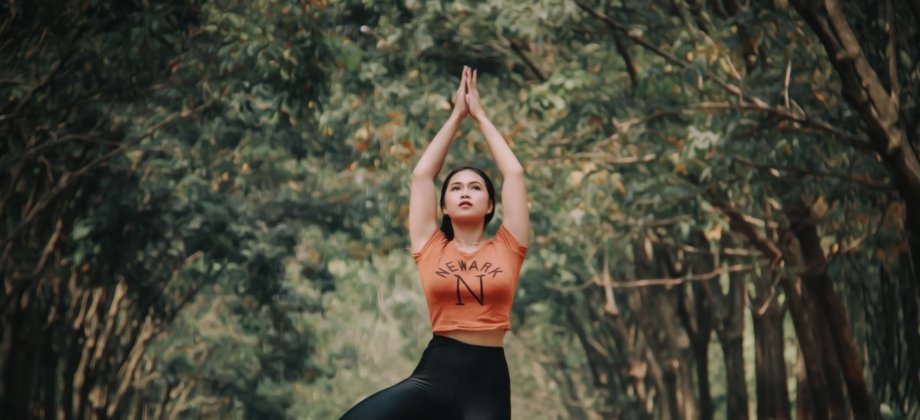
Take the Leap: How to Quit Your Day Job and Start Teaching Yoga Full Time
You’re a yoga teacher. Shake off that imposter syndrome and say it out loud — because even if you do still have a day job, you are a yoga teacher.
You’ve done the training…and then some more training. You’ve read approximately 10,000 books (or two books if you’re not much of a book-learner; that’s OK too). You’ve dedicated yourself to your personal practice and, at the same time, your teaching practice has been developing with every class and every student.
Take the time to clarify why you want to teach. And then remind yourself of that as many times as you need to along the way.
And now there’s a little voice in the back of your head saying, “Go on. You can do it. Make this your full-time career — you know you want to.”
Making the leap from teaching yoga in your ‘spare’ time to going all in and building a full-time career around it is daunting. There’s no way around it; you’re embracing a new level of risk in your life, and putting everything you have into a job that doesn’t give you any guarantees.
So, to help you with this big decision, here are 3 signs that you’re ready to quit the other job and devote your days to yoga
You have enough financial stability to try it
I’d love to be romantic and say you should follow your dreams no matter what; but it’s crucial to be realistic about what you can afford.
Financial stability means something different to everyone. If you’re in your early twenties with no one else depending on you for money, it’s easier to take the risk and make things work — although you still need enough in your savings pot to pay the rent for a few months.
If you have children or other dependents your financial planning needs to stretch a little further into the future; you might need at least a year’s worth of savings to keep you going, so you have time to build up your teaching business.
And if you have a partner or family member who earns enough (and is willing) to pick up the slack when you take an inevitable pay cut, it’ll be easier to dive in to full-time teaching with slightly less stress.
Basically, if you can confidently say “it’s OK if I make very little money for 6-12 months,” you’re good to go full-time. It doesn’t matter how good you are; it takes time to develop a business and start making the money you need.
You’re ready for hard work
In general, a full-time yoga teacher leads between 8-15 classes every week, with extra one-off workshops and retreats thrown in on a regular basis. If each class is no more than 90 minutes long, that might not sound like much initially. But you’ve also got to factor in:
- Travel time between classes
- Very early mornings and late nights (for those pre- and post-work classes)
- Lots of admin - creating marketing materials, managing bookings and payments, promoting classes, responding to queries, liaising with studios and venues, doing your taxes, keeping your website/blog/vlog/social media lively and up to date…
- Pressure - because the onus is all on you to make this work
And this all adds up. In addition, when you’re just starting out as a full-time teacher, all of the above is tripled. You’ll have to work really hard to fill new classes or secure jobs with studios, and you’ll need to sustain that hard work over a long period of time.
But don’t be disheartened. All of this is totally doable. Make sure you’re feeling good about the idea of throwing yourself all in and working very hard to get your business up and running, and make plans to sustain that positivity when the going gets tough.
Arm yourself with knowledge and become super organised. What systems can you put in place to make things simpler and less time-consuming? How can you plan ahead for the weeks when you don’t earn as much?
Momoyoga offers brilliant tools to help you focus on teaching more and stressing less. Get your booking system in place before you launch new classes — you won’t regret it, I promise.

You genuinely enjoy teaching yoga
This one might sound a little fluffy; but it truly is important. Different people like teaching yoga for different reasons, and there’s one correct ‘why?’ that you need to ascribe to.
But whether you love making people feel good; you’re fascinated by human anatomy; you’re captivated by the puzzle of healing through movement; or you thrive on the challenge of weaving creativity and philosophy into a physical practice; or whatever else it is; there’s got to be something that makes you glow after class.
There needs to be a reason that feels true to you. Otherwise you won’t keep going when the classes don’t feel right, or you’re not making enough money, or you’re really tired and you don’t want to get up at 5am for the sixth day in a row.
Take the time to clarify why you want to teach. And then remind yourself of that as many times as you need to along the way.
Because persistence is key to making it work
When you’re trying to build a solid student base for a new class, or trying to build a solid career overall, persistence is vital. It’s normal to take months, or even years, to build a consistently successful class or a weekly schedule. And the one sure way to do it is this: don’t give up.






